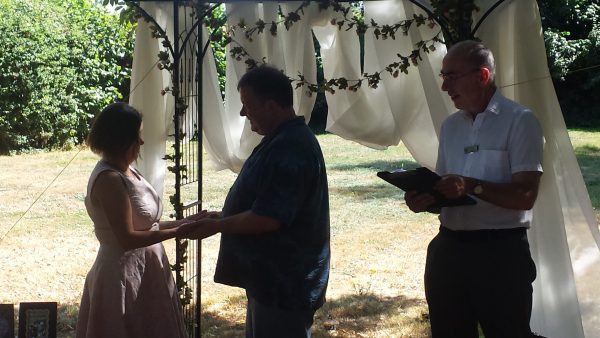
by Michael | Oct 22, 2018 | Blog
Wedding vows are an integral part of any wedding ceremony. There are beautiful traditional ones that you can borrow. But you can supplement – or even replace – them with ones you write yourself.
Yes, I can imagine your reaction! “I’m not writing my own vows!” Or, at the very least, you would point out that most of us are not born writers.
How can you possibly write your own wedding vows?!
That’s where people like me come in.
One of the beautiful things about working with a civil celebrant is that your ‘script’ can be exactly what you want. And, although there are some lovely vows you can borrow or adapt, writing your own marriage vows can prove to be personal, moving and even emotional.
No one wants to risk producing ‘naff’ vows, so here are ten tips to help you.
- Do ensure you and your partner BOTH want to do this, and agree whether you will do this separately or together.
- Make sure that the person conducting the ceremony knows in advance. And it’s OK for them to look at what you have written before the ceremony.
- Allow loads of time to prepare your vows – you’re bound to need to do plenty of rewriting.
- Start by deciding a few general things you want to say (you can worry about the detail later) – just have clear in your head what it is important.
- What sort of register do you want to use? By that I mean: will the tone be serious, humorous, deep, spiritual, religious, or some sort of combination?
- Once you’ve got a few sentences down (and remember, sixty seconds each for the whole thing can be quite long enough!), see about reworking them so they look and sound good to you.
- Leave your draft a day or two, and come back and, if necessary, rework it. You can ask a friend to review it – but they must be honest!
- Once you’re satisfied, practise reading the vows (alone!) in front of a mirror – or practise with your partner.
- At the end of the ceremony, give the vows to somebody to keep for you (or make and file a copy beforehand).
- When you deliver your vows – whether you read them, follow notes or repeat after the celebrant – don’t forget to look into your partner’s eyes!
I shall write about content another time, but, you see, the principle is not really that hard after all!
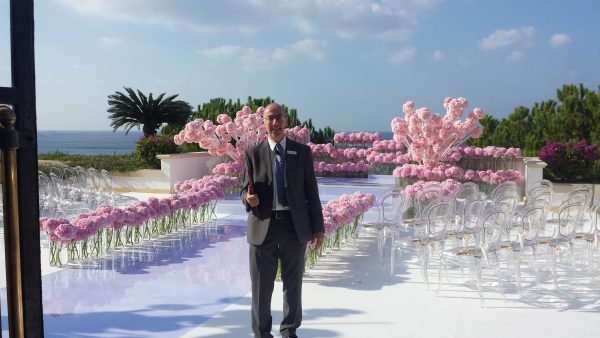
by Michael | Mar 8, 2018 | Blog
Where do you begin, when planning your wedding?
If nothing else, consider these points:
- The budget
Obviously, this is the bottom line. You need to work together with anyone who is helping you here (probably your family?), and decide rationally what you will spend. It’s no good getting carried away with enthusiasm – you need self-discipline.
Big as the occasion may be, you do not want to bankrupt yourselves. And it’s worth pointing out that the amount spent does not guarantee the success of the marriage itself!
The event is (or should be) a ceremony; it should not be an attempt to show off how rich or extravagant you are. Should the reception mean more than the vows?
Good taste and sincerity are more important.
This doesn’t mean that you can’t have a few OTT touches (budget permitting), but these should be a bonus rather than what you are aiming at. There are probably certain elements that you will insist on, and it’s as well to discuss these at the outset, so that they aren’t overlooked later.
The budget will also dictate the ceremony, participants, reception and number of guests to invite, but that is something I cover elsewhere, notably in my book “Your Wedding Guide”.
- Date & location
Naturally, it will be more expensive to schedule your wedding at peak times (such as summer holidays, Christmas or around Valentine’s Day). You may want to avoid major events, such as World Cups and holiday season, when your potential guests may be otherwise engaged.
You’ll need to consider climate too, if you want an outdoor wedding. Or, at least, a Plan B.
The venue should, of course, be where you want it to be, but if it’s in an exotic location, your guests may have to go to a lot of expense and trouble to attend, so keep that in mind.
Make sure you visit the venue, ask questions and ensure that you really want to have your ceremony there.
- Other Suppliers
As soon as you have settled on your budget, start choosing other suppliers that you may need. Like the venue, which may want a year or more advance warning, you should allow plenty of time, in order to secure the supplier of your choice.
Among others, you will need to consider florists, caterers, musicians and, not least, celebrant. Where possible, you should meet with these first, so you can feel confident you have made the right choices. All that takes time, so allow for that.
- Choosing theme and colours
It’s easy to get excited and let your imagination run away with your wallet. Keep your budget in mind, use wedding books and planning guides and whatever resources are available to you.
Do not over-decorate. Make full use of flowers and candles.
Be creative with the colours. These may reflect the bride’s personality. Vivid colours (tastefully combined) can be most effective.
- Vows and music
The vows are one of the most important elements of a marriage. They should be well-planned – and audible. They are a public declaration of your mutual feelings, and should not be under-valued.
Equally, the music should be planned carefully and be clearly audible. Make sure you choose lyrics that you want your guests to hear!
Hopefully, the planning will be a team effort (maybe even the groom will be willing to participate!). If approached in the right way, it can be enjoyable and exciting, and the result will be so worthwhile.
For further advice, please contact Michael.
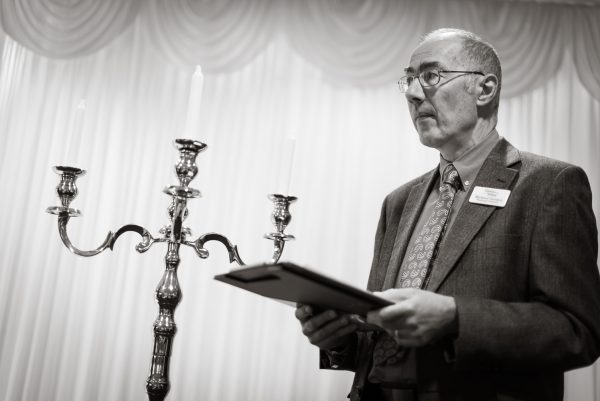
by Michael | Dec 5, 2017 | Blog
Planning to write your own wedding vows? You might be OK with the prospect, but most people doubt they can do it. Worse still, how about delivering the finished product?
It’s very challenging to compose something that will be read publicly. Even more so, if it’s you who will be delivering it.
Cheer up! There are tips you can follow that will help you.
One simple option is to hire a professional to do it for you. Peace of mind in an instant!
The “how”
A civil celebrant is used to public speaking. He conducts weddings, funerals, vow renewals and other ceremonies on a regular basis. Sometimes, the guests number fewer than 10; often, there are more than 100 of them. A good civil celebrant will deliver the texts clearly, beautifully and movingly.
In order to put together the text, the civil celebrant will work with the relevant person(s), normally starting with a home visit. Asking questions and listening intently, the celebrant will draw up a picture of the person being honoured. Once he has sufficient information, he will go away and create a special ceremony.
This will be e-mailed to the client, who can request changes (normally, up till 24 hours before the ceremony). Once the order of service is settled, the client will have seen the final version, and approved every word.
Vows
If vows are to be written, it is lovely if they reflect the couple’s personalities and beliefs. The best people to do that are the couple themselves, of course! However, a celebrant can suggest ideas, offer guidance, so the couple can write something unique. If needs be, he can even do the job for the couple.
Vows can be traditional or modern. They want to be sincere and achievable. They can be solemn, but also funny. Moreover, don’t think that they have to go on too long! Half a minute each may well be all it takes.
Presentation
There are various choices available to you, when delivering your vows.
You can memorise what you want to say. If you’re an experienced public speaker, you might choose this option. Otherwise, I don’t recommend it. You will have nerves to contend with, and, indeed, you may not project your words loudly and clearly. If you are not heard, that would be a huge shame.
Secondly, you can read your words. In that case, in order not to lose the sincerity of the moment, use a 3 x 5 card with bullet points. Try not to read from it too much, though, so your eyes can meet your beloved’s! (That means plenty of practice beforehand, so you know what you’re wanting to say!) There’s also the question of keeping and holding the card, which may be an issue, particularly for the bride!
Thirdly, the celebrant can read your vows, ending by asking if you agree, and all you have to do is to say “yes” or “I do” (hopefully!).
Finally, the celebrant can read phrases out which you each repeat. That way, the guests can hear the vows, even if you’re mumbling them. Moreover, you and your beloved can say the words to each other with eye contact, and that is surely the way to go.
For examples of vows, or help and advice, feel free to ask me. I can be found at 07931 538487 or at celebrant@vowsthatwow.co.uk
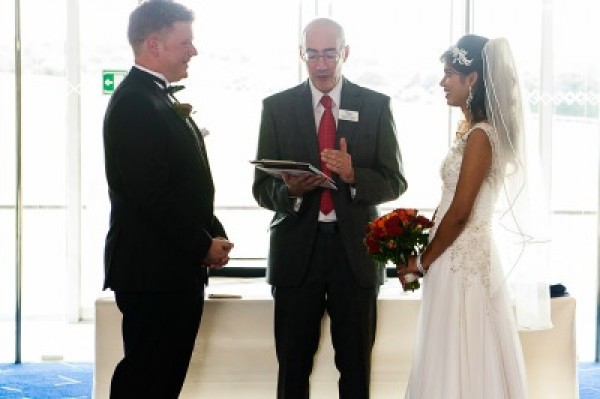
by Michael | Sep 29, 2015 | Blog
Of course, you are looking to create your perfect day. Well, many elements will go towards the completed whole, but you really need to take account of at least these five points when planning your wedding.
- The budget
Obviously, this is the most important factor. You have to work together with anyone who is helping you here (probably your family?), and decide rationally what you will spend. It’s no good getting carried away with enthusiasm – you need self-discipline.
Big as the occasion may be, you do not want to bankrupt yourselves. And remember that the amount spent does not guarantee the success of the marriage!
The event is (or should be) a commitment ceremony; it should not be an attempt to show off how rich or extravagant you are. Should the reception really mean more than the vows?
Good taste and sincerity are more important.
This doesn’t mean that you can’t have a few OTT touches (budget permitting), but that should be a bonus rather than the intention. There are probably certain elements that you will insist on, and it’s as well to discuss these at the outset, so that they aren’t overlooked later.
The budget will also dictate the ceremony, participants, reception and number of guests to invite, but that is something I cover elsewhere, notably in my book “Your Wedding Guide”.
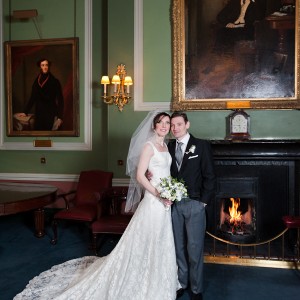
- Date & location
Naturally, it will be more expensive to schedule your wedding at peak times (such as summer holidays, Christmas or around Valentine’s Day). You may want to avoid major events, such as World Cups and holiday season, when your potential guests may be otherwise engaged.
You’ll need to consider climate too, if you want an outdoor wedding.
The venue should (as far as possible) be the place of your dreams, but if it’s in an exotic location, your guests may have to go to a lot of expense and trouble to attend, so keep that in mind.
- Other Suppliers
As soon as you have settled on your budget, start discussing suppliers that you may need. Like the venue, which may require a year or more’s warning, you should allow plenty of time, in order to secure the supplier of your choice.
Among others, you will need to consider florists, caterers, dressmakers, musicians and, not least, celebrant. Where possible, you should meet with these first, so you can feel confident you have made the right choices. All that takes time, so allow for that.
- Choosing theme and colours
It’s easy to get excited and let your imagination run away with your wallet. Keep your budget in mind, use wedding books and planning guides and whatever resources are available to you.
Do not over-decorate, but make full use of flowers and candles.
Be creative with the colours. These may reflect the bride’s personality. Vivid colours (tastefully combined) can be most effective.
5. Vows and music
The vows are one of the most important elements of a marriage. They should be well-planned – and audible. They are a public declaration of your mutual feelings, and should not be under-estimated.
Equally, the music should be planned carefully and be clearly audible. Make sure you choose lyrics that you really want, as they will be publicised to all your guests.
Hopefully, the planning will be a team effort (maybe the groom will be willing and able to participate!). If approached in the right way, it will be enjoyable and exciting, and so, so worthwhile. Do think about my book “Your Wedding Guide“, which takes you by the hand and helps you to get things right.
by Michael | Mar 18, 2013 | Blog
Marriage vows are an integral – and often favourite – part of our wedding ceremonies. They are intended to cement the marriage union.
They haven’t always been what they are today and they are not the same across the cultures. I thought it might be interesting now to look at their origins.
The traditional wedding vows come from the “Book of Common Prayer” of England.
The groom says: “I, …, take thee, …, to my lawful wedded wife, to have and to hold from this day forward, for better or for worse, for richer for poorer, in sickness and in health, to love and to cherish, till death us do part, according to God’s holy ordinance; and thereto I plight thee my troth.
The bride says the same (except “husband” replaces “wife” but there is a slightly different wording in the middle: “to love, cherish and to obey “).
“Obey” was a translation from the Latin and really signified “listen deeply”. The Episcopal Church removed the word “obey” from the woman’s part of the vows, as the Holy Bible defined it as meaning ‘give submission to another’.
“Troth” means faithfulness.
Over the years, some more changes have been made. Nowadays, “love, honour and cherish” has become the preferred norm.
In some cultures, marriage didn’t count just for the bride and groom but also an entire community and village! So the new person was considered to be joining the tribe, and thus swearing allegiance.
In the Middle Ages, marriages were rarely a matter of love. They represented a union and connection between two families, and were often for purposes of business and land. Legally-binding marriage vows then became an essential.
Today, marriage vows, while evolving in details, have stayed much the same. Couples do have the option of writing their own unique wedding vows.
Next time, we’ll take a further look at the content and significance of wedding vows.
Michael Gordon is a wedding celebrant based in London.





